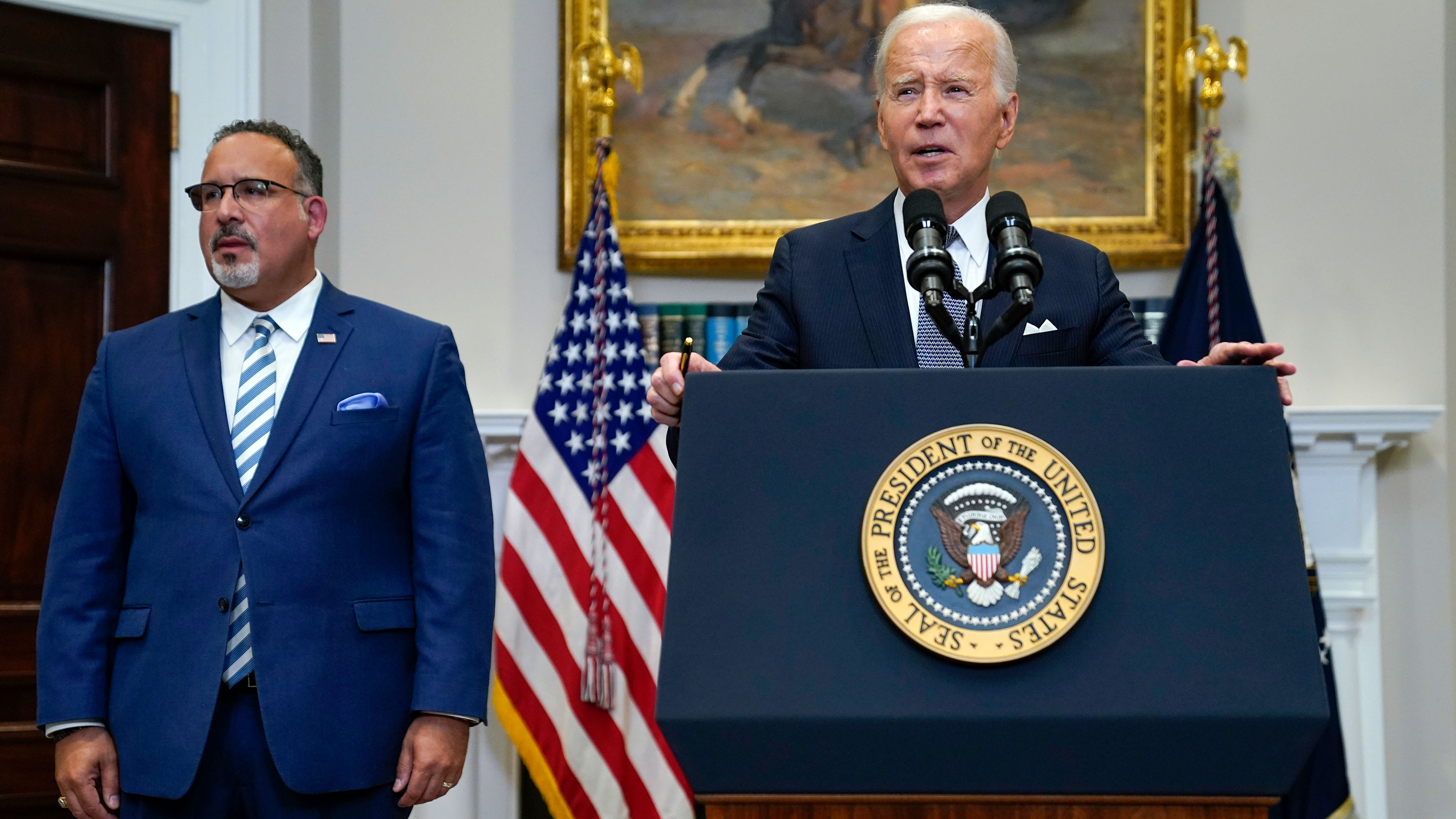China's Ambassador On Potential Formal Trade Agreement With Canada

Table of Contents
Ambassador's Stance on Bilateral Trade Relations
The Chinese Ambassador's recent public statements regarding bilateral trade relations with Canada have offered a mixed message. While expressing a general interest in fostering stronger economic ties, the Ambassador has also highlighted significant hurdles that need to be overcome. The overall tone can be described as cautiously optimistic, acknowledging the potential benefits of increased trade while emphasizing the need for a conducive political environment.
- Specific comments regarding trade barriers: The Ambassador has directly addressed the need for both countries to actively work on removing existing trade barriers, specifically mentioning streamlining customs procedures and addressing non-tariff obstacles.
- Mention of any specific sectors highlighted for potential cooperation: Areas like agricultural exports from Canada and technological collaboration in areas like renewable energy and artificial intelligence have been identified as sectors ripe for enhanced cooperation under a potential China-Canada trade agreement.
- References to any existing trade agreements or initiatives: The Ambassador frequently references the existing Comprehensive and Progressive Agreement for Trans-Pacific Partnership (CPTPP) as a framework for potential cooperation, suggesting that a China-Canada agreement could build upon existing multilateral trade structures.
Key Obstacles to a Formal China-Canada Trade Agreement
Despite the potential upsides, several significant obstacles currently hinder the path toward a formal China-Canada trade agreement. These challenges span both the political and economic spheres.
Political Challenges: Lingering diplomatic tensions surrounding issues like the Huawei case and ongoing concerns regarding human rights in China continue to cast a long shadow over the bilateral relationship. These sensitive issues often dominate the narrative and can quickly derail progress on economic fronts.
Economic Factors: Differing economic models and the potential for significant trade imbalances present further economic challenges. Concerns about fair competition and the protection of Canadian industries are also key points of contention.
- Specific examples of political disagreements hindering progress: The arrest of Meng Wanzhou and the subsequent diplomatic fallout significantly damaged trust and hampered progress on trade talks. Ongoing human rights concerns also create a political climate that makes negotiation difficult.
- Analysis of potential economic downsides for either country: A trade imbalance favoring China could lead to concerns in Canada about job losses and economic vulnerability. Conversely, limiting access to the Canadian market could harm Chinese businesses seeking export opportunities.
- Mention of any internal political pressures within Canada or China affecting negotiations: Internal political pressures within both countries, including debates surrounding national security and economic sovereignty, complicate the negotiation process and create internal roadblocks to reaching a mutually beneficial agreement.
Potential Benefits of a China-Canada Trade Agreement
Despite the hurdles, the potential economic benefits of a comprehensive China-Canada trade agreement are substantial for both nations.
-
Increased exports and investment: A formal agreement could lead to a significant increase in bilateral trade, boosting exports for both Canadian and Chinese businesses. Canadian agricultural products, natural resources, and technology could find expanded markets in China, while Chinese goods could gain greater access to the Canadian market.
-
Job creation and economic growth: Increased trade translates to more jobs and stimulates economic growth in both countries. Canadian businesses could see an increase in employment opportunities as exports rise, while Chinese businesses would benefit from accessing a large and stable market in Canada.
-
Specific examples of Canadian industries that could benefit: Canadian agricultural producers, technology companies, and resource extraction industries stand to gain significantly from enhanced market access in China.
-
Quantifiable estimates of potential economic gains (if available): While precise figures are difficult to predict, independent studies have estimated significant potential GDP growth for both nations under a comprehensive trade agreement.
-
Discussion of the potential for diversification of trade partners for both countries: Reducing dependence on a single major trading partner helps mitigate risk and ensures greater economic stability.
Next Steps and Future Outlook for China-Canada Trade Relations
The timeline for future negotiations remains uncertain. The political will from both governments is a critical determinant of the likelihood of reaching a formal agreement in the near future.
- Predicted timeline for future discussions or negotiations: While no concrete timeline exists, it is likely that discussions will continue on a sector-specific basis before a comprehensive agreement is possible.
- Assessment of the political will from both governments: The current political climate suggests that a comprehensive agreement may still be some time away. However, strong economic incentives could eventually motivate both sides to overcome political hurdles.
- Mention of potential alternative cooperation mechanisms (e.g., sector-specific agreements): In the interim, both countries may seek to collaborate on smaller-scale trade agreements focused on specific sectors.
Conclusion: The Future of the China-Canada Trade Agreement
The Chinese Ambassador's statements regarding a potential China-Canada trade agreement reveal a complex situation. While significant economic benefits are readily apparent, significant political hurdles stand in the way. The path to a formal agreement remains challenging, but the potential rewards for both countries are substantial. The future of this relationship hinges on both governments’ willingness to address the existing political sensitivities and find mutually beneficial solutions. Stay informed on developments regarding the China-Canada trade agreement by following updates from reputable news sources and government websites. The potential for economic cooperation between these two powerful nations is undeniable, and a strengthened trade relationship could shape the global economic landscape for years to come.

Featured Posts
-
 The Diddy Trial Examining Cassie Venturas Account Of Sean Combs Actions
May 17, 2025
The Diddy Trial Examining Cassie Venturas Account Of Sean Combs Actions
May 17, 2025 -
 Trumps Student Loan Privatization Plan What It Could Mean For Borrowers
May 17, 2025
Trumps Student Loan Privatization Plan What It Could Mean For Borrowers
May 17, 2025 -
 Deudores De Prestamos Estudiantiles Temen Un Segundo Mandato De Trump
May 17, 2025
Deudores De Prestamos Estudiantiles Temen Un Segundo Mandato De Trump
May 17, 2025 -
 Tam Krwz Ks Ke Sath Telqat Myn Hyn
May 17, 2025
Tam Krwz Ks Ke Sath Telqat Myn Hyn
May 17, 2025 -
 Departamento De Educacion Endurece Medidas Contra Deuda Estudiantil
May 17, 2025
Departamento De Educacion Endurece Medidas Contra Deuda Estudiantil
May 17, 2025
Latest Posts
-
 Mhrjan Aljzayr Alsynmayy Yukrm Almkhrj Allyby Sbry Abwshealt
May 17, 2025
Mhrjan Aljzayr Alsynmayy Yukrm Almkhrj Allyby Sbry Abwshealt
May 17, 2025 -
 Sbry Abwshealt Rhlt Fnyt Tukll Baltkrym Aljzayry
May 17, 2025
Sbry Abwshealt Rhlt Fnyt Tukll Baltkrym Aljzayry
May 17, 2025 -
 Aljzayr Thtfy Binjazat Almkhrj Allyby Sbry Abwshealt
May 17, 2025
Aljzayr Thtfy Binjazat Almkhrj Allyby Sbry Abwshealt
May 17, 2025 -
 Ahtfae Jzayry Bmwhbt Sbry Abwshealt Almkhrj Allyby Almtmyz
May 17, 2025
Ahtfae Jzayry Bmwhbt Sbry Abwshealt Almkhrj Allyby Almtmyz
May 17, 2025 -
 Tkrym Astthnayy Llsynma Allybyt Fy Aljzayr Qst Sbry Abwshealt
May 17, 2025
Tkrym Astthnayy Llsynma Allybyt Fy Aljzayr Qst Sbry Abwshealt
May 17, 2025
